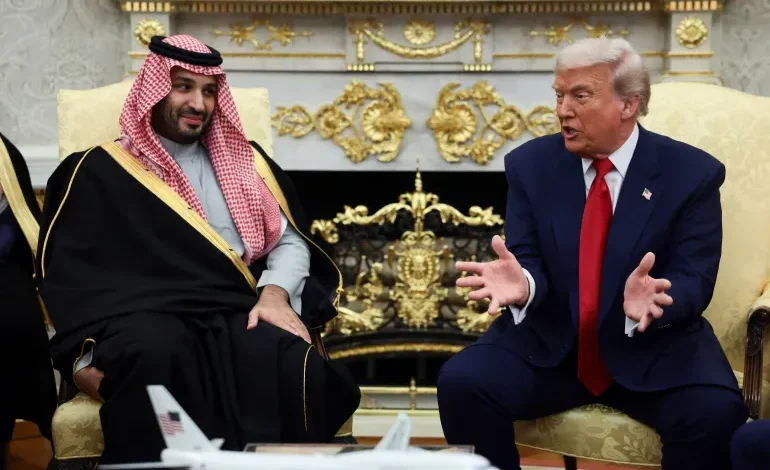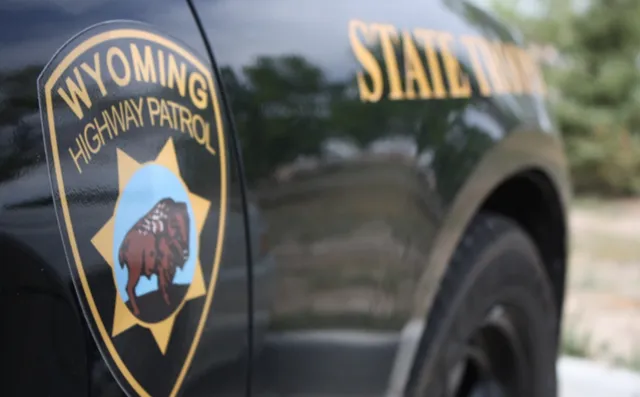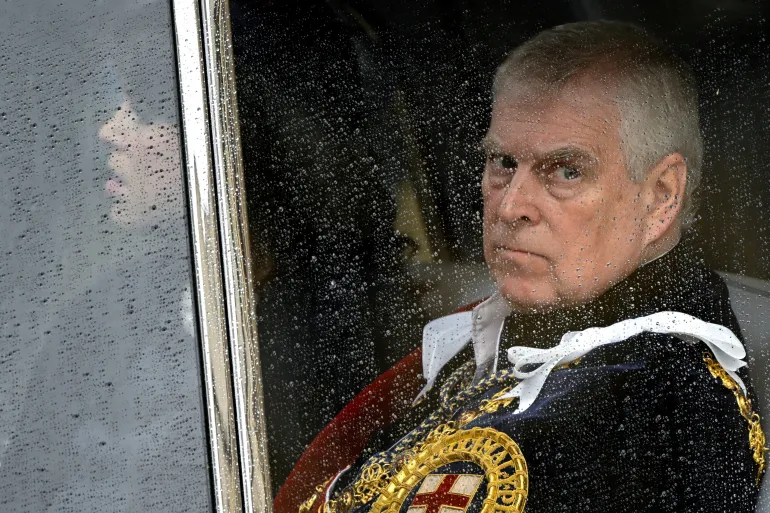Trump Rolls Out the Red Carpet for MBS as US-Saudi Ties Tighten

Saudi Crown Prince Mohammed bin Salman got the full royal-pageantry treatment at the White House on Tuesday, with US President Donald Trump greeting him like a long-lost geopolitical soulmate: marching bands, flag-bearing horsemen, a military flyover, the works. Subtle it was not.
The display set the tone for a visit that underscored just how firmly Washington and Riyadh are locking back into step. Trump framed it as part of his vision for a “new Middle East” built on capital, security deals, and big tech ambitions, with Saudi Arabia positioned as the central partner.
After sweeping into the South Portico, MBS and Trump fielded reporters’ questions in the Oval Office, riffing on business, AI, peace diplomacy, and defence deals. By evening, the White House was rolling out a black-tie dinner and a series of major announcements that confirmed the relationship is not just thawing, it’s heating back up.
Both leaders hinted that something may be brewing on the long-stalled Saudi-Israel track. Trump said he had “good talks” with the crown prince, while MBS repeated Riyadh’s longstanding public position: normalisation needs a credible path to Palestinian statehood.
“We believe having a good relation with all Middle Eastern countries is a good thing, and we want to be part of the Abraham Accords,” Prince Mohammed said. “But we want also to be sure that we secure a clear path [to a] two-state solution.”
Saudi officials have consistently anchored any deal to the Arab Peace Initiative. Trump, meanwhile, sounded content to keep all options open:
“We talked about one state, two states. We talked about a lot of things.”
No timelines, but definitely a nudge.
In a move loaded with symbolism, Trump announced at the dinner that the US now recognises Saudi Arabia as a major non-NATO ally. The status gives Riyadh faster access to advanced US military tech and cooperation programs, bypassing some of the usual licensing gauntlets.
It puts Saudi Arabia in a club of 19 other nations, from Australia to Qatar, and aligns Riyadh even more tightly with US security structures. Taiwan, notably, also enjoys a similar classification.
The White House also revealed that Trump and MBS signed a strategic defence agreement “that strengthens our more than 80-year defense partnership and fortifies deterrence across the Middle East.”
Details? Still foggy. But the administration says Saudi Arabia will contribute new “burden-sharing funds” and reaffirm that Washington remains its primary security anchor.
This comes on the heels of Riyadh’s defence pact with Pakistan, and regional jitters after Israel’s attack on Qatar raised questions about US reliability. Washington clearly wants to close ranks again.
Trump confirmed he will approve the sale of F-35 fighter jets to Saudi Arabia, brushing aside Israel’s long-defended “qualitative military edge” policy.
“They’d like you to get planes of reduced calibre. I don’t think that makes you too happy,” Trump told MBS, before adding that both Israel and Saudi Arabia “should get top of the line.”
That’s a seismic shift in long-standing US doctrine, and one likely to echo through regional security planning.









The latest news in your social feeds
Subscribe to our social media platforms to stay tuned